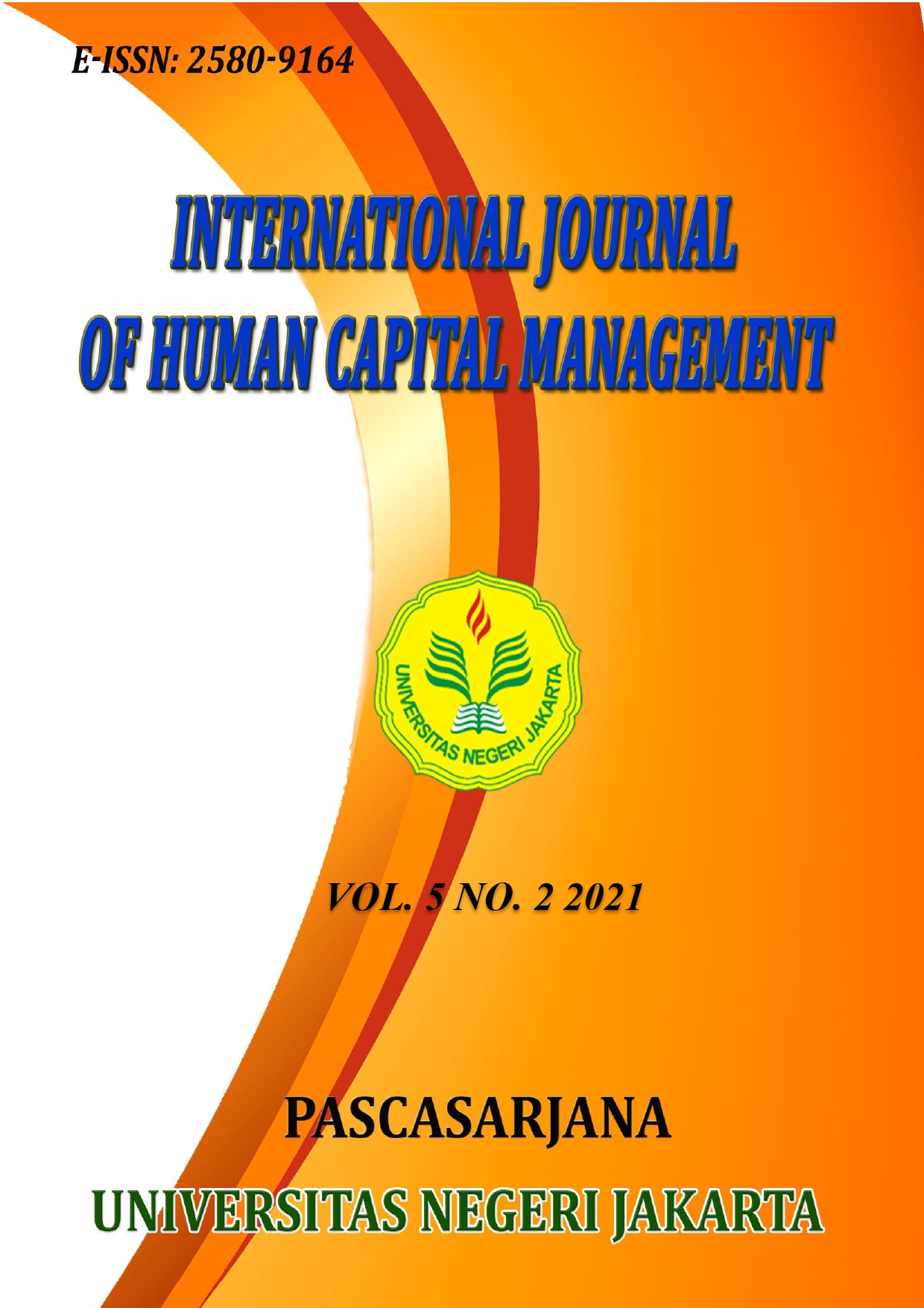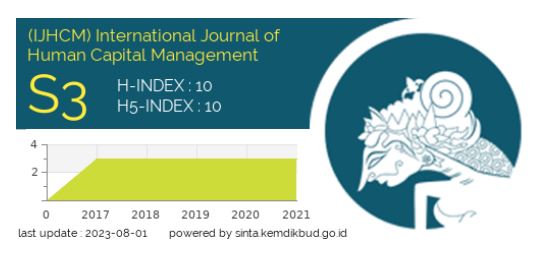Analysis of Policy Models in Improving Effectiveness of HR Leadership for Educators at Senior High Schools in Banten Province
DOI:
https://doi.org/10.21009/IJHCM.05.02.4Keywords:
Knowledge Management, Emotional Intelligence, Independence, Competitive Advantage, And Leadership EffectivenessAbstract
Background: Facing the era of globalization as it is today, every country must have a competitive advantage, especially in the field of education in order to be able to survive, play a role, and compete, both in input, process, output, and outcome. According to Unesco (2018), one of the causes of the low Educational Development Index (EDI) in Indonesia in 2018 is the low effectiveness of the leadership of school principals as human resources for educators, where there are still principals who do not carry out their duties and functions as leaders. education because: (1) in the process of appointment it is not in accordance with the provisions (procedures) as set by the government, (2) low management knowledge, intellectual and emotional intelligence, independence, and competitive advantage of the Principal which will affect the effectiveness of his leadership in carrying out his duties, so that it becomes an inhibiting factor in improving the quality of education, and has implications for the low productivity and quality of the principal's human resources (input, process, output/outcome). Purpose: The grand design of this study will analyze the basic framework or policy model in improving management knowledge, emotional intelligence, independence, competitive advantage, and the effectiveness of the Principal's leadership as Human Resources for Educators at Senior High Schools (SLTA) in Banten Province. Originality/value: What distinguishes this research from previous research (novelty) is the difference in: (1) the aspects studied, namely aspects of management knowledge, emotional intelligence, independence, competitive advantage, and the effectiveness of the principal's leadership as human resources for educators in schools Senior High School (SLTA) in Banten Province, (2) the unit of analysis used in this study, namely HR Principals as Educators at Senior High Schools (SLTA) in Banten Province, and (3) Independence (X3) and Excellence Competing (X4) has no significant effect on Leadership Effectiveness (Y), and Emotional Intelligence (X2) has no significant effect on Competitive Advantage (X4). Research Limitations: The limitations in this study are only to analyze and calculate the influence of management knowledge, emotional intelligence, independence, and competitive advantage on the effectiveness of the Principal's leadership as Human Resources for Educators at Senior High Schools (SLTA) in Banten Province. Design/methodology/approach: This research was conducted in Banten Province, for 6 months. The population in this study is the Principal as Human Resources for Educators at Senior High Schools (SMA, SMK and MA) in Banten Province. Sampling was carried out using a random sampling method of 60 respondents, which were processed using the Smart PLS Ver 3.0 application and SEM. Findings: The results of this study explain that Knowledge Management (X1), and Emotional Intelligence (X2) have a significant effect on Leadership Effectiveness (Y). Independence (X3) and Competitive Advantage (X4) have no significant effect on Leadership Effectiveness (Y). Management Knowledge (X1) has a significant effect on Independence (X3), while Emotional Intelligence (X2) has no significant effect on Competitive Advantage (X4).




